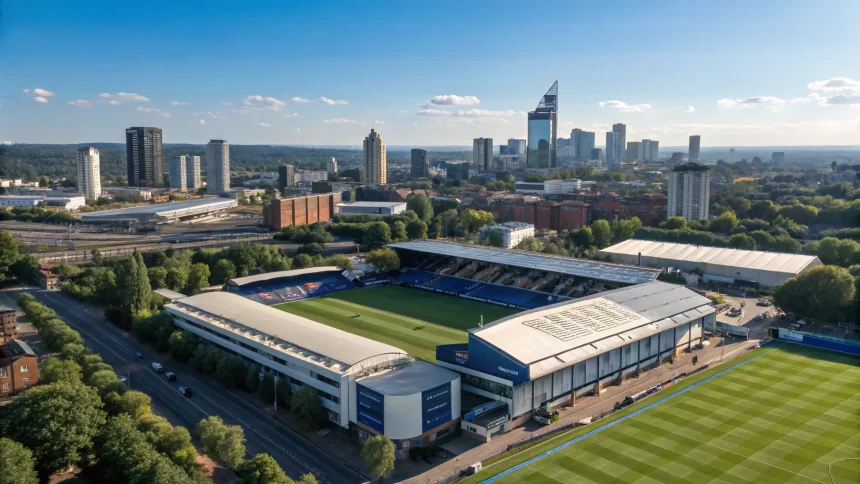Birmingham City FC owner Tom Wagner views the departure of investors from the United Kingdom as a strategic advantage for American backers. Wagner, who is spearheading a significant development project in Birmingham, the UK’s second-largest city, sees potential where others are retreating.
The American businessman’s perspective comes at a time when the UK has experienced notable capital outflows, creating what some analysts describe as a buyer’s market for those with available funds and long-term vision.
Birmingham Investment Strategy
Wagner’s investment in Birmingham City FC represents just one component of a broader development initiative targeting the West Midlands metropolis. His approach appears to be multi-faceted, combining sports franchise ownership with urban development projects that could reshape significant portions of Birmingham’s landscape.
The timing of Wagner’s investments aligns with a period of economic uncertainty in the UK, where some international investors have reduced their exposure to British assets following Brexit and amid ongoing economic challenges.
“The current market conditions create unique opportunities for those willing to commit to the UK market,” Wagner has indicated through his actions and statements regarding his Birmingham projects.
Counter-Cyclical Investment Approach
Wagner’s strategy appears to follow a counter-cyclical investment philosophy, where capital is deployed when others are withdrawing from the market. This approach has historically yielded significant returns for investors who correctly identify undervalued assets during periods of market pessimism.
The Birmingham City FC owner is not alone among American investors spotting value in the UK. Several US investment firms have increased their British holdings across various sectors including real estate, entertainment, and sports franchises.
The exit of traditional investors creates space for new capital with different perspectives and time horizons.
Economic Impact on Birmingham
For Birmingham itself, Wagner’s investment comes at a critical time. As the UK’s second-largest city, Birmingham has worked to redefine itself as a modern business and cultural hub following its industrial past.
The development projects associated with Wagner’s investment could generate:
- New employment opportunities across construction and service sectors
- Increased tourism and visitor spending
- Improved infrastructure in targeted development zones
- Enhanced international profile for the city
Local economic development officials have welcomed the American investment at a time when domestic capital has been more cautious about major new projects.
Broader US-UK Investment Patterns
Wagner’s perspective on UK investment opportunities reflects a broader pattern of American capital finding value in British assets. The relative weakness of the pound against the dollar in recent years has made UK acquisitions more affordable for US investors.
Financial analysts note that American investors often take a longer-term view than some of their international counterparts, allowing them to weather short-term market volatility in pursuit of strategic assets.
The sports sector has been particularly attractive to US investors, with American ownership now common across Premier League football clubs and other sporting properties throughout the UK.
As the UK continues to adjust to its post-Brexit economic reality, the willingness of investors like Wagner to commit significant resources to major development projects may prove crucial to maintaining growth and development in key regional centers like Birmingham.









